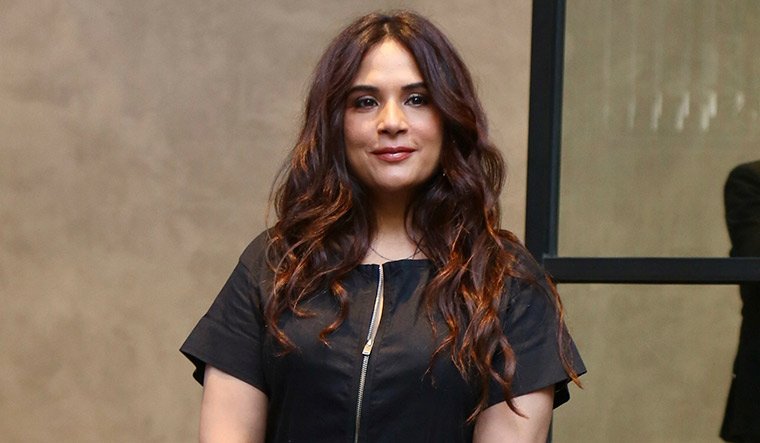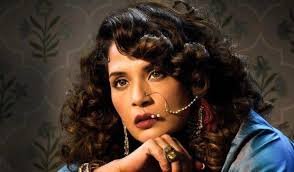Mumbai, March 6 (PTI) Actor-producer Richa Chadha says she wants to work towards empowering women in traditionally male-dominated areas of the film industry, such as spot and lighting departments.
The 37-year-old actor, known for films like “Gangs of Wasseypur”, “Fukrey” franchise, said for her debut home production, “Girls Will be Girls”, they trained and hired women in the lighting department.
Directed by Shuchi Talati, the film follows the journey of Mira, a 16-year-old girl whose rebellious awakening is intertwined with her mother’s unfulfilled coming-of-age experiences.
“Intentionality matters, and we have to try and do something. I turned producer with ‘Girls Will Be Girls’. The director is a woman. There was a sexuality thing in the film, so she wanted an all-female team. When you shoot, there’s an (intimate) scene and then there’s (a man) holding thermocol and you are told, ‘There’s not enough light, there was shadow, etc’, so you don’t always feel safe.
“In the lighting department, there are no women in India. We thought of doing a training programme for it. A company called ‘Light and Light’ (in Mumbai) sent a trainer. They spent time with girls teaching (them) storytelling through lightning, using technology, etc. We hired one of them on our set,” Chadha said during a panel discussion at FICCI Frames on Tuesday evening.
The actor said while there has been “progress” in the representation of women in front of and behind-the-camera, a lot of work still needs to be done.
Condemning the recent incident of a Spanish woman’s gang-rape in Jharkhand’s Dumka district, Chadha said such “horrible” instances create a fear of “unsafe” atmosphere for women.
“We have made some progress. Every year it is better than last year. But then, it’s taking two steps forward and one step back. When something horrible happens in society, whether it’s in Manipur, Jharkhand, it sets people (back in time) because then parents are like, ‘It’s unsafe for you to study and work’. We are not in a decision-making position in society,” she said.
In the movie industry, she said her aim is to create work opportunities for women in different departments that have been largely dominated by men.
“There’s one film gaffer only in the film industry and that’s because her father was a gaffer, not that she is not talented. I’m also going to see what we can do about the spot department. It’s always about spot boy or spot dada, so why not (a girl) because there are so many women, and it’s a job for caregiving, they (women) can give so much care. So, let’s see,” Chadha said.
The actor applauded producers like Ekta Kapoor, who create diverse female-led films like “Crew” and “Thank You for Coming”.
Asked about the shift in representation of female characters and the need to challenge the stereotypical portrayal of women in testosterone-filled movies like “Animal”, “Pushpa”, the actor said movies are often inspired by society.
“I’ve seen ‘Pushpa’, I haven’t seen ‘Animal’ yet. I think society also goes through phases. There are some films that give space for some kind of anger, I look at it that way. I feel if society is getting more and more angry, it goes in a certain direction, we have phases like this. I think representation shifts (onscreen),” she said.
Chadha and Ekta Kapoor were part of a panel discussion at FICCI Frames, called ‘Trailblazers in entertainment: Celebrating Women’s Contribution in Films and Shows’.
Kapoor said it is easier to make “misogynistic” films than a movie that celebrates womanhood.
“It has become far tougher since COVID-19 because it is easier to make a slightly misogynistic film, or a more machismo kind of film than celebrating womanhood or feminism. The word feminism is a taboo in movies. It is so scary as, we as women producers, want to support stories, and we will be at it,” the producer said.
Kapoor, known for backing films like “The Dirty Picture”, “Veere Di Wedding”, “Thank You for Coming”, “Dream Girl” and others, she was questioned for making a female-led movie like “Crew”.
“In movies, it is becoming more and more difficult to make films about women. I’m making a film called ‘Crew’ and there’s so much love for the promo, and a lot of people told me, ‘Who will watch a film about three women?’.
“If this (film) had three heroes, the story would have been totally different. This mindset can only change by changing the commerce of it, and that me and Rhea Kapoor, as two female producers, are extremely dedicated to. When the commerce changes, the kind of films change, the lens changes.” According to Kapoor, TV and streaming platforms have changed because of the likes of Aparna Purohit at Amazon and Monika Shergill, the Netflix India VP.












